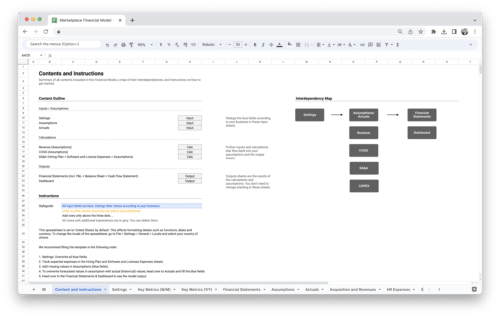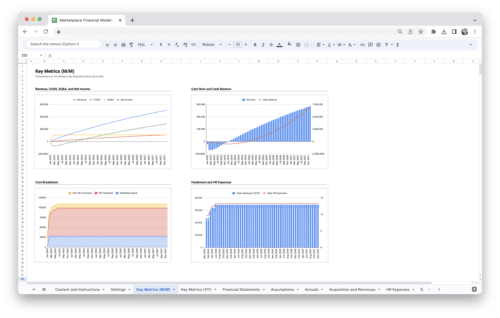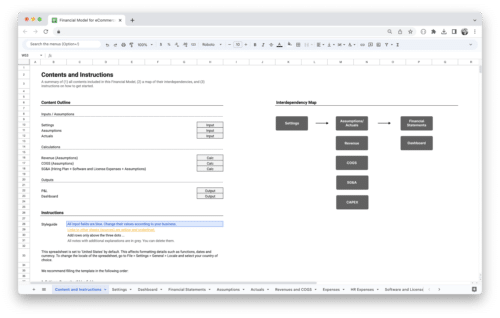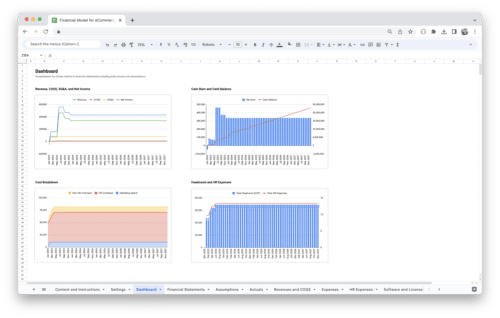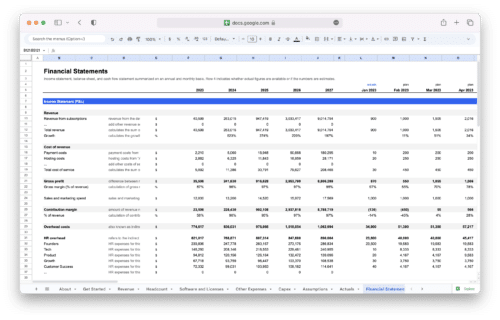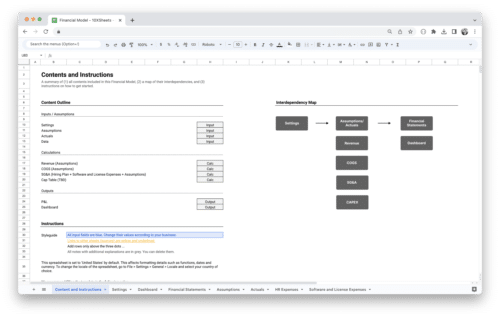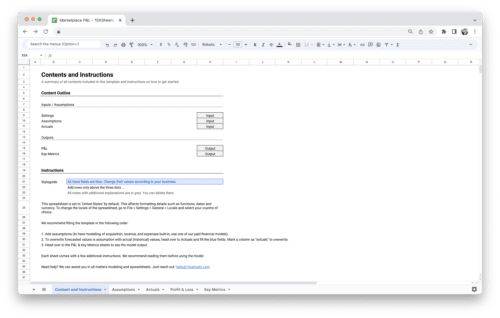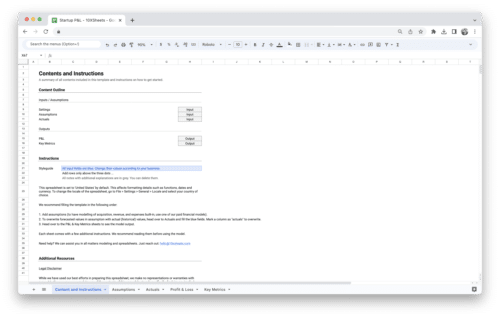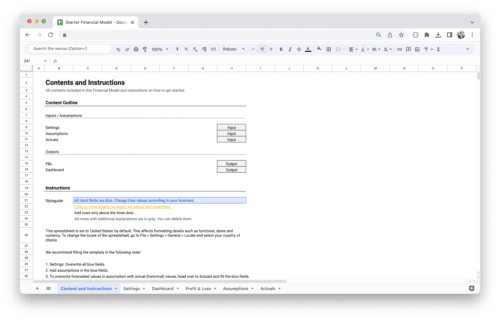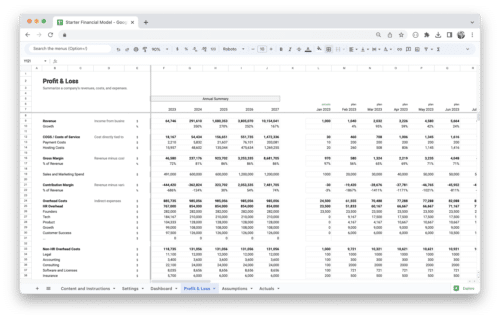- What is a Small Business?
- Importance of Small Businesses in the Economy
- Advantages and Challenges of Starting a Small Business
- Researching Small Business Opportunities
- How to Start a Small Business?
- Top Small Business Ideas
- Assessing Business Viability
- Planning and Executing Small Business Operations
- Managing Finances and Resources
- Marketing and Promotion Strategies
- Scaling and Growing Your Small Business
- Overcoming Challenges and Ensuring Long-Term Success
- Conclusion
Starting a small business can be an exciting and rewarding venture. Small businesses play a vital role in the economy by fostering innovation, creating jobs, and driving local economic growth. However, embarking on this journey requires careful planning and research to ensure success. This guide is designed to help aspiring entrepreneurs like you navigate the process of starting a small business by providing valuable insights, practical advice, and a curated list of top small business ideas to consider.
What is a Small Business?
A small business is generally characterized by its size, scope, and ownership structure. While specific definitions may vary across countries and industries, a common understanding is that a small business is an independently owned and operated enterprise with relatively few employees and limited revenue compared to larger corporations. Small businesses often have a more localized focus and serve niche markets or specific customer segments.
Importance of Small Businesses in the Economy
Small businesses play a significant role in driving economic growth and vitality. They contribute to job creation, innovation, and community development. Here are some key reasons why small businesses are important in the economy:
- Job Creation: Small businesses are a major source of employment opportunities in many economies. They often provide jobs for local communities, contributing to lower unemployment rates and increased economic stability.
- Innovation and Entrepreneurship: Small businesses are known for their agility and ability to innovate. They bring fresh ideas, products, and services to the market, fostering competition and driving overall economic growth.
- Economic Resilience: Small businesses enhance economic resilience by diversifying industries and reducing dependence on a few large corporations. They provide a more balanced and sustainable economic ecosystem, making the economy less susceptible to shocks or disruptions.
- Local Economic Development: Small businesses have a positive impact on local economies. They contribute to the development of vibrant communities, support local supply chains, and contribute to the tax base, which funds essential public services.
- Inclusive Growth: Small businesses often provide opportunities for individuals from diverse backgrounds, including women, minorities, and disadvantaged groups. They promote inclusivity, social mobility, and entrepreneurship as a means to overcome economic disparities.
Advantages and Challenges of Starting a Small Business
Starting a small business offers numerous advantages and presents its fair share of challenges. Understanding these factors can help aspiring entrepreneurs make informed decisions. Here are some key advantages and challenges associated with starting a small business:
Advantages of Starting a Small Business
- Independence and Autonomy: Small business owners have the freedom to make their own decisions, shape their business vision, and pursue their passion. They have the opportunity to be their own boss and control their professional destiny.
- Flexibility: Small businesses often provide more flexibility in terms of work hours, location, and decision-making. This flexibility can enhance work-life balance and allow entrepreneurs to align their business with personal priorities.
- Direct Interaction with Customers: Small businesses have the advantage of establishing personal connections with customers. They can provide personalized experiences, build trust, and adapt quickly to customer needs, leading to customer loyalty and repeat business.
- Agility and Adaptability: Small businesses can respond quickly to market changes, adapt their strategies, and pivot their offerings. They are often more agile than larger corporations, allowing them to capitalize on emerging trends and seize opportunities.
- Potential for High Returns: While not guaranteed, small businesses have the potential for high returns on investment. With the right business idea, effective execution, and a well-defined target market, small businesses can generate significant profits.
Challenges of Starting a Small Business
- Limited Resources: Small businesses often face resource constraints, including limited financial capital, manpower, and infrastructure. Acquiring necessary resources and managing them efficiently can be a challenge, especially in the early stages.
- Competition: Small businesses must compete with larger, established competitors that have more extensive resources and brand recognition. Developing unique value propositions, effective marketing strategies, and targeted niche markets can help overcome this challenge.
- Financial Uncertainty: Small businesses are inherently exposed to financial risks and uncertainties. Cash flow fluctuations, unexpected expenses, and difficulty in securing funding can create financial pressures. Careful financial planning and management are essential to navigate these challenges.
- Balancing Multiple Roles: Small business owners often wear multiple hats, performing various roles such as management, sales, marketing, and operations. Balancing these responsibilities while ensuring business growth can be demanding and require effective time management.
- Regulatory and Compliance Burdens: Compliance with regulations, licenses, permits, and tax requirements can be complex and time-consuming for small business owners. Staying updated with legal obligations and seeking professional advice can help navigate these challenges.
Recognizing and addressing these advantages and challenges can better prepare aspiring entrepreneurs for the journey of starting and running a successful small business.
Researching Small Business Opportunities
Before diving into any business venture, it is essential to conduct thorough research to identify viable opportunities. By taking the time to understand market trends, demands, and competitor landscapes, you can make informed decisions that increase your chances of success.
Identifying Your Interests, Skills, and Passions
When considering small business ideas, start by evaluating your own interests, skills, and passions. By leveraging your existing knowledge and expertise, you can enhance your chances of success and find fulfillment in your entrepreneurial journey.
Analyzing Market Trends and Demands
To identify potentially profitable business opportunities, analyze current market trends and demands. Stay updated with industry reports, market research, and consumer behavior data to identify gaps or emerging niches that you can capitalize on.
Assessing Local and Global Market Opportunities
While local markets provide immediate accessibility, exploring global market opportunities can offer significant growth potential for certain business ideas. Evaluate the feasibility of expanding your business beyond local boundaries and consider how to cater to a broader customer base.
Conducting Competitor Analysis
Conducting a competitor analysis helps you understand the competitive landscape and identify strategies to differentiate your business. Analyze your competitors’ strengths, weaknesses, marketing tactics, and customer feedback to position your small business effectively.
How to Start a Small Business?
Starting a small business requires careful planning and execution. By following these essential steps, you can lay a solid foundation for your entrepreneurial journey.
Developing a Business Plan
A business plan serves as a roadmap for your small business and helps you define your goals, target audience, marketing strategies, and financial projections. It typically includes the following sections:
- Executive Summary: A concise overview of your business, including its mission, vision, and objectives.
- Market Analysis: Detailed research on your target market, customer profiles, and competitors.
- Company Description: An overview of your business structure, legal status, and key stakeholders.
- Product/Service Offering: A detailed description of your offerings, including their unique features and value proposition.
- Marketing and Sales Strategies: A plan outlining how you will attract and retain customers, including pricing, distribution channels, and promotional activities.
- Operational Plan: Details about your business operations, such as production processes, supply chain management, and logistics.
- Financial Projections: Forecasts of your expected revenues, expenses, and cash flow, including profit and loss statements, balance sheets, and cash flow statements.
A well-crafted business plan demonstrates your understanding of the market, your competitive advantage, and your ability to generate sustainable profits.
Legal Considerations and Business Registration
Ensure that you comply with all legal requirements before starting your small business. This includes choosing the appropriate legal structure (sole proprietorship, partnership, LLC, etc.), registering your business name, obtaining necessary permits and licenses, and understanding your tax obligations. Consult with legal professionals or business advisors to ensure you adhere to all legal regulations.
Financing Options for Small Businesses
Finding the necessary funds to start your small business can be a significant challenge. Explore different financing options, such as:
- Bootstrapping: Funding the business using personal savings or assets.
- Small Business Loans: Applying for loans from banks or credit unions.
- Government Grants: Exploring grant programs offered by local, state, or federal governments.
- Crowdfunding: Raising funds through online platforms by attracting contributions from a large number of individuals.
- Angel Investors or Venture Capitalists: Seeking funding from individuals or firms interested in investing in startups.
Research each option thoroughly and assess the associated costs, repayment terms, and potential impact on your business.
Setting Up a Professional Network and Mentorship
Building a professional network and seeking mentorship can provide invaluable guidance and support throughout your entrepreneurial journey. Attend industry events, join business associations, and connect with experienced entrepreneurs who can share their insights and help you navigate challenges.
Top Small Business Ideas
Now that we have covered the essential steps to start a small business, let’s explore a curated list of top small business ideas across various industries. These ideas have shown significant growth potential and align with current market trends. Consider the following business ideas:
Home-based Business Ideas
- Freelancing and Consulting Services: Leverage your skills and expertise to offer freelance services in areas such as writing, graphic design, web development, marketing, or consulting.
- Online Tutoring or Coaching: Provide online tutoring or coaching services in subjects or skills you excel in, catering to students or individuals seeking personal or professional development.
- E-commerce Store: Start an online store to sell products of your choice, whether it’s handmade crafts, vintage items, or niche products targeting specific customer segments.
- Virtual Assistance: Offer virtual assistance services to busy professionals or businesses, providing administrative, marketing, or customer support remotely.
- Content Creation and Blogging: Start a blog or create engaging content for businesses, websites, or social media platforms, monetizing it through advertisements or sponsored content.
Service-based Business Ideas
- Personal Fitness Trainer: Provide personalized fitness training services to individuals or groups, either in person or through virtual platforms.
- Event Planning and Management: Offer event planning and management services, assisting clients in organizing weddings, corporate events, parties, or conferences.
- Home Cleaning and Organizing Services: Provide professional cleaning and organizing services for residential or commercial spaces.
- Mobile Pet Grooming: Offer convenient pet grooming services by operating a mobile grooming van or providing in-home pet grooming services.
- Graphic Design and Branding Services: Utilize your design skills to offer graphic design and branding services to businesses, helping them create visually appealing brand identities.
Retail and Product-based Business Ideas
- Specialty Food or Beverage Shop: Open a specialty food or beverage shop focusing on unique and niche products such as gourmet chocolates, organic snacks, or artisanal coffee.
- Handmade Crafts and Goods: Create and sell handmade crafts and goods through online platforms or at local markets, catering to customers seeking unique and personalized products.
- Subscription Box Service: Curate and deliver subscription boxes containing niche products or customized experiences, targeting specific interests or demographics.
- Vintage or Thrift Store: Open a vintage or thrift store offering pre-loved clothing, furniture, accessories, or collectibles, appealing to environmentally-conscious consumers.
- Eco-friendly or Sustainable Products: Start a business that sells eco-friendly or sustainable products, such as reusable household items, organic skincare products, or renewable energy solutions.
Technology and Online Business Ideas
- Mobile App Development: Develop mobile applications for specific purposes, such as productivity tools, entertainment, or e-commerce.
- Website Design and Development: Offer website design and development services to businesses and individuals looking to establish their online presence.
- Social Media Management: Help businesses manage their social media accounts, create engaging content, and implement effective social media strategies.
- Online Course Creation and Teaching: Create and sell online courses on platforms like Udemy or Coursera, sharing your expertise in a specific field.
- Software-as-a-Service (SaaS) Solutions: Develop and offer software solutions as a service, catering to specific industry needs, such as project management, customer relationship management, or inventory management.
Remember, the success of any small business idea depends on factors such as your passion, market demand, competition, and effective execution of your business plan. Evaluate each idea carefully, conduct thorough market research, and choose the one that aligns with your goals and resources.
Assessing Business Viability
Once you have identified a potential small business idea, it is crucial to assess its viability and potential for success. Consider the following steps:
Market Research and Validation
Conduct in-depth market research to understand the demand for your product or service, target audience, and competitive landscape. Gather data through surveys, interviews, and analysis of industry reports to validate your business idea.
Determining Target Audience and Customer Personas
Identify your target audience and create customer personas that represent your ideal customers. Understand their demographics, preferences, pain points, and buying behavior to tailor your marketing efforts effectively.
Conducting Feasibility Studies
Perform feasibility studies to assess the financial and operational feasibility of your business idea. Evaluate factors such as start-up costs, pricing, profit margins, and potential return on investment. Ensure that your business idea is financially viable and sustainable in the long run.
SWOT Analysis for Small Business Ideas
Conduct a SWOT analysis (Strengths, Weaknesses, Opportunities, Threats) to evaluate the internal and external factors that can impact your small business. Identify your strengths and weaknesses, opportunities for growth, and potential threats in the market. Use this analysis to develop strategies to capitalize on your strengths, overcome weaknesses, seize opportunities, and mitigate threats.
By assessing the viability of your business idea, you can make informed decisions, refine your strategies, and increase your chances of success.
Planning and Executing Small Business Operations
Once you have validated your business idea, it’s time to plan and execute the operations of your small business effectively. This involves several key steps:
Establishing a Legal Structure and Obtaining Necessary Licenses
Choose the appropriate legal structure for your small business, such as sole proprietorship, partnership, limited liability company (LLC), or corporation. Consult with legal professionals to ensure compliance with all legal requirements and obtain the necessary licenses and permits for your industry.
Creating a Brand Identity and Marketing Strategy
Develop a strong brand identity that aligns with your target audience and differentiates your business from competitors. This includes creating a compelling brand name, logo, tagline, and brand messaging. Develop a comprehensive marketing strategy that outlines your target audience, marketing channels, advertising tactics, and promotional activities.
Developing a Sales and Customer Acquisition Plan
Define your sales process and develop strategies to acquire customers. Identify your target market, create a sales funnel, and outline lead generation tactics, such as online advertising, social media marketing, search engine optimization (SEO), email marketing, or networking events.
Setting Up Efficient Operational Processes
Establish efficient operational processes to streamline your business operations. This includes defining standard operating procedures (SOPs), establishing supply chain management systems, implementing inventory management systems, and optimizing production processes for maximum efficiency.
Hiring and Managing Employees or Contractors
If your small business requires additional workforce, develop a hiring plan, define job roles and responsibilities, and create a recruitment process. Implement effective employee management strategies, such as providing training and development opportunities, conducting performance evaluations, and fostering a positive work culture.
Leveraging Technology for Small Business Success
Utilize technology to automate processes, enhance productivity, and improve customer experience. Adopt software solutions for accounting, project management, customer relationship management (CRM), and other essential business functions. Embrace digital tools and online platforms to expand your reach, engage with customers, and streamline operations.
By effectively planning and executing your small business operations, you can enhance efficiency, deliver exceptional customer experiences, and position your business for long-term success.
Managing Finances and Resources
Managing your finances and resources is crucial to the success of your small business. Implement effective financial strategies to ensure profitability, maintain healthy cash flow, and make informed financial decisions.
Setting Up Financial Systems and Accounting Processes
Establish robust financial systems and implement accounting processes to accurately track income, expenses, and financial transactions. Utilize accounting software or hire a professional accountant to maintain financial records and generate financial statements.
Budgeting and Financial Forecasting
Create a comprehensive budget that outlines your projected revenue and expenses. Regularly review and update your budget as your business grows. Conduct financial forecasting to estimate future cash flow and profitability based on different scenarios and assumptions.
Managing Cash Flow and Working Capital
Manage your cash flow effectively to ensure you have sufficient funds to cover your expenses and invest in business growth. Implement strategies such as invoicing promptly, offering incentives for early payments, negotiating favorable payment terms with suppliers, and managing inventory levels to optimize working capital.
Securing Funding and Financing Options
Continuously evaluate your funding needs and explore different financing options available to small businesses. These may include small business loans, lines of credit, grants, crowdfunding, or seeking investment from angel investors or venture capitalists. Compare terms, interest rates, and repayment schedules to choose the most suitable option for your business.
Tracking and Optimizing Business Expenses
Monitor and track your business expenses meticulously. Implement expense management strategies such as negotiating with suppliers for better pricing, optimizing operational costs, and regularly reviewing your expenses to identify areas where you can reduce costs and increase profitability.
By effectively managing your finances and resources, you can ensure the financial stability and sustainability of your small business.
Marketing and Promotion Strategies
Implementing effective marketing and promotion strategies is crucial to attract customers, build brand awareness, and drive business growth. Consider the following tactics to promote your small business successfully:
Creating a Compelling Value Proposition
Craft a compelling value proposition that clearly communicates the unique benefits and value your small business offers to customers. Highlight what sets you apart from competitors and why customers should choose your products or services.
Developing an Effective Marketing Plan
Develop a comprehensive marketing plan that outlines your target audience, marketing objectives, strategies, and tactics. Include both online and offline marketing channels, such as digital advertising, content marketing, social media marketing, public relations, events, and traditional advertising.
Utilizing Digital Marketing Channels
Leverage the power of digital marketing to reach a wider audience and engage with potential customers. Develop a strong online presence through search engine optimization (SEO), pay-per-click (PPC) advertising, social media marketing, email marketing, and content marketing.
Building Brand Awareness and Visibility
Invest in building brand awareness and visibility to increase recognition and attract customers. Utilize branding elements consistently across all touchpoints, such as your website, social media profiles, packaging, and marketing materials. Seek opportunities for media coverage, collaborations, and partnerships to extend your reach.
Implementing Customer Retention Strategies
Customer retention is crucial for long-term success. Implement strategies to nurture customer relationships, such as loyalty programs, personalized communication, exceptional customer service, and post-purchase follow-ups. Encourage customer reviews and testimonials to build trust and attract new customers.
Utilizing Public Relations and Media Opportunities
Harness the power of public relations to generate positive publicity and enhance your brand image. Seek media opportunities, contribute guest articles or interviews to industry publications, and participate in relevant events or conferences to establish yourself as an industry expert.
By implementing effective marketing and promotion strategies, you can increase brand visibility, attract customers, and foster business growth.
Scaling and Growing Your Small Business
Scaling and growing your small business requires careful planning and strategic decision-making. Consider the following steps to expand and take your business to the next level:
Identifying Growth Opportunities and Strategies
Continuously assess market trends, customer needs, and emerging opportunities to identify avenues for growth. Explore new markets, diversify your product or service offerings, or target new customer segments to expand your business.
Expanding Product or Service Offerings
Consider expanding your product or service offerings to cater to evolving customer demands or enter new market segments. Conduct market research to understand customer preferences and develop new offerings that align with their needs.
Geographic Expansion or Targeting New Markets
If feasible, explore opportunities for geographic expansion by entering new locations or targeting international markets. Adapt your marketing strategies, product offerings, and pricing to cater to the unique needs of different markets.
Building Partnerships and Strategic Alliances
Collaborate with complementary businesses or strategic partners to leverage their resources, customer base, or distribution channels. Joint ventures, partnerships, or affiliate programs can help expand your reach and drive mutual growth.
Implementing Effective Customer Relationship Management
Prioritize customer relationship management to foster loyalty and retention. Implement CRM systems to track customer interactions, personalize communication, and provide exceptional customer experiences. Continuously seek feedback and implement improvements based on customer insights.
Managing Operations During Growth Phases
Ensure your operational processes can handle increased demand and complexity during growth phases. Streamline workflows, optimize supply chain management, and invest in scalable technologies and infrastructure to support business growth.
By strategically scaling and growing your small business, you can capitalize on new opportunities, increase revenue, and achieve long-term success.
Overcoming Challenges and Ensuring Long-Term Success
The journey of entrepreneurship is not without challenges. Overcoming obstacles and ensuring the long-term success of your small business requires resilience, adaptability, and continuous improvement. Consider the following strategies:
Managing Risks and Uncertainties
Identify potential risks and develop contingency plans to mitigate their impact on your business. Regularly assess and monitor risks such as market volatility, regulatory changes, cybersecurity threats, or supply chain disruptions. Obtain appropriate insurance coverage to protect your business against unforeseen events.
Adapting to Market Changes and Disruptions
Stay agile and responsive to market changes and disruptions. Monitor industry trends, consumer behavior, and technological advancements. Continuously innovate, evolve your offerings, and adapt your business strategies to stay ahead of the competition.
Improving Resilience and Flexibility
Build resilience and flexibility into your business operations. Diversify your customer base, suppliers, and distribution channels to mitigate dependency risks. Develop backup plans for critical processes and invest in training and upskilling your workforce to adapt to changing circumstances.
Innovating and Staying Ahead of the Competition
Embrace a culture of innovation within your organization. Encourage employees to generate new ideas, experiment with new approaches, and continuously improve processes. Stay updated with industry developments and competition to identify opportunities for differentiation.
Seeking Continuous Learning and Professional Development
As an entrepreneur, invest in your own continuous learning and professional development. Stay updated with industry trends, attend relevant conferences or workshops, and join industry associations or networks. Seek mentorship or coaching to gain insights from experienced professionals.
By embracing challenges, adapting to change, and fostering a culture of continuous improvement, you can ensure the long-term success and sustainability of your small business.
Conclusion
Starting a small business requires careful planning, research, and execution, but it can be an incredibly fulfilling and rewarding experience. In this guide, we have explored the essential steps to start a small business, curated a list of top small business ideas, and provided valuable insights on managing finances, marketing strategies, and scaling your business.
Remember, success comes with persistence, dedication, and a willingness to adapt to changing circumstances. Stay focused, embrace challenges as opportunities for growth, and leverage the knowledge and resources available to you. With determination and the right strategies, your small business can flourish and make a significant impact in the marketplace.
Get Started With a Prebuilt Template!
Looking to streamline your business financial modeling process with a prebuilt customizable template? Say goodbye to the hassle of building a financial model from scratch and get started right away with one of our premium templates.
- Save time with no need to create a financial model from scratch.
- Reduce errors with prebuilt formulas and calculations.
- Customize to your needs by adding/deleting sections and adjusting formulas.
- Automatically calculate key metrics for valuable insights.
- Make informed decisions about your strategy and goals with a clear picture of your business performance and financial health.

